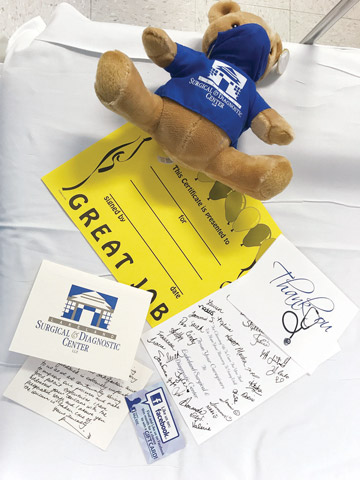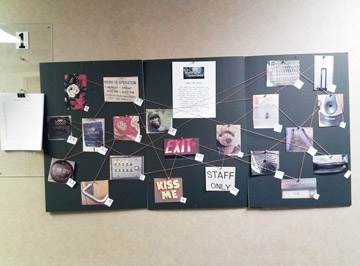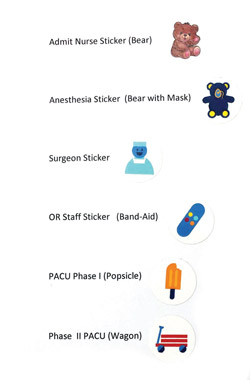But patients aren't the only ones who benefit from the use of aromatherapy. In the busy GI unit, there's an aromatherapy machine at the nurses' station that dispenses a calming lavender scent. The logic behind the staff-centered aromatherapy:
The calmer the staff, the more satisfied the patients.
- Personal outreach. Every facility is bound to have at least a few patients who aren't 100% satisfied with their overall experience. Lakeland targets this faction with personal outreach from high-level staff. "If we get negative
feedback on a survey, a director will follow up with the patient through a hand-written card or even a direct phone call," says Ms. Williams. "A lot of patients are surprised to get a call from a director because they think "I'm filling
out this survey, but it's not gonna do anything.' The phone call shows them that we do intend to do something."
The goal, of course, is to prevent negative comments in the first place. That's easier said than done — especially in those situations where impatient patients' procedures are delayed, and they're asked to wait for longer-than-expected stretches
of time. Lakeland's staff is able to reduce patients' frustration simply by suggesting they watch something on the facility-provided iPads, a patient-satisfier that's mainly used for children but is available for everyone. In other cases,
the staff takes a preemptive approach. When patients appear a bit antsy, Lakeland staff will approach the patient before the patient approaches them and present gift cards for local area restaurants. "We'll go up to the patient and say, "Look
I'm sorry you've waited so long. Here's a gift card for you guys to have a meal on us,'" says Ms. Williams. Lakeland generally gives out around 4 or 5 gift cards per month for a variety of reasons, and Ms. Williams says it's helped to minimize
any negative responses on the facility's patient surveys.
After surgery, every patient receives a hand-written card from the entire staff at Lakeland. Each department gets his or her entire staff to sign the cards, so patients will routinely get cards with signatures in the double-digits. "It's something
our patients definitely appreciate," says Ms. Williams. "A large amount of our surveys include comments from patients saying how much they liked the personal touch of the thank-you cards."
If you're looking for ways to ramp up your own facility's patient satisfaction efforts, Ms. Williams can't stress the importance of the survey enough. As she puts it, the patient satisfaction survey is a proven way to "see the care you provided
through the patients' eyes." And based on Lakeland's survey scores and patients' comments, the view is pretty good. OSM
.svg?sfvrsn=be606e78_3)





.svg?sfvrsn=56b2f850_5)